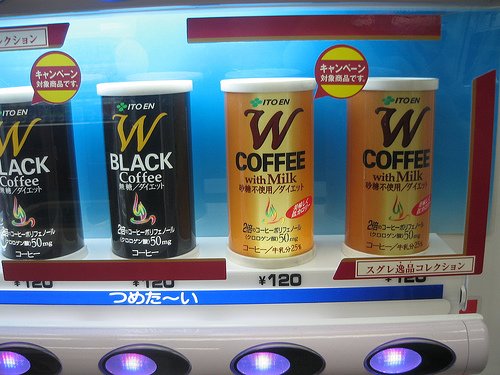I get a lot of mail from people who’d like to live in Japan someday, and I do my best to offer what guidance I can. Far and away, the most common job open to naive English speakers in Japan is teacher of English as a Second Language. Possible job avenues in this area include the national ESL school chains like AEON, GEOS and ECC; private-contract schools of varying sizes; jobs teaching English to employees of companies; more structured positions at high schools or universities; and the JET program. While it wasn’t always a walk in the park, I did enjoy the years I spent teaching ESL before starting J-List, and I’d recommend teaching in Japan to anyone as long as they knew the limitations of the job (a four-year degree is required, and remember that “taught English in Japan” isn’t always the best way to fill out one’s resume). Still, I am invariably asked what other career paths are open to foreigners here. Other than the usual options you might think of — translation, editing and checking of already translated works, becoming cast members at Tokyo Disneyland — there is another up-and-coming career choice, that of a fake minister to perform weddings. While many Japanese get married with traditional Shinto ceremonies, Western-style weddings are still the most popular, and our prefecture has dozens of beautiful Western-influenced wedding halls, such as The Georgian House, which recreates an 18th century British manor so that couples can try to capture that elusive “Princess Diana” feeling at their wedding. In order for a white wedding to feel authentic, you just have to have a real-live foreigner there to say the nuptials. I ran into a friend of mind a few months ago, and he told me that he had almost given up teaching in lieu of his more profitable career as a wedding minister. At around $150-200 per ceremony, it’s good work if you can get it, I suppose.
(Remember that I do have an article I’ve been writing over the past decade giving my now-oh-so-out-of-date advice on teaching ESL. See it here.)

You’ve been in Japan too long when you see a sign for a “mansion gallery” and know immediately that it’s a building built to allow prospective buyers of high-rise condominiums (called “mansions” here) to see what the insides are like before making a purchase. Like every country, the Japanese take words and change them to fit their needs, so that sometimes a native speaker might not know what the original meaning was. For some reason only the Japanese can know, the letter “W” represents the idea of “double,” and it’s common for companies to use this letter in their product naming to communicate benefits, like the canned coffee I saw recently that promised “W” (double) the delicious coffee taste. The English word “service” often means “free” here, and if the owner of a ramen shop you’re eating at uses the word as he hands you a free drink, you’ll know what it means. Some other unique uses of English words including referring to screwdrivers as “plus” or “minus,” labeling young people who decline to find full-time jobs “freeters,” and one that threw me the first time I heard it, “number” for the license plate of a car.
I’ve talked before about how it’s possible in Japan to lose touch with what year it is currently. In addition to the standard Western calendar, the Japanese have a unique system of counting years based on the reign of the current emperor. It’s currently the 18th year of the Heisei era (Heisei means “Accomplishment of Peace,” written 平成), which began when Emperor Hirohito died and was succeeded by his son, Akihito, so this year is Heisei 18. Before Heisei was the long Showa era (昭和, “Enlightened Peace,” from 1925 to 1988), before that was Taisho (大正, “Great Righteousness,” 1912-1924), Meiji (明治, “Enlightened Rule,” 1868-1911), and so on. When you live in Japan, you quickly learn various dates in the Japanese system, since you need it to fill out forms — I was born in Showa 43, e.g. 1968, my kids were born in Heisei 7 and 8, and so on. No doubt the Universal Century system of dates in the Gundam universe, which starts when humans first colonize space, is inspired by this system. It’d be kind of cool if we had names for Presidential eras, although we’d spend so much time arguing over what to use.















